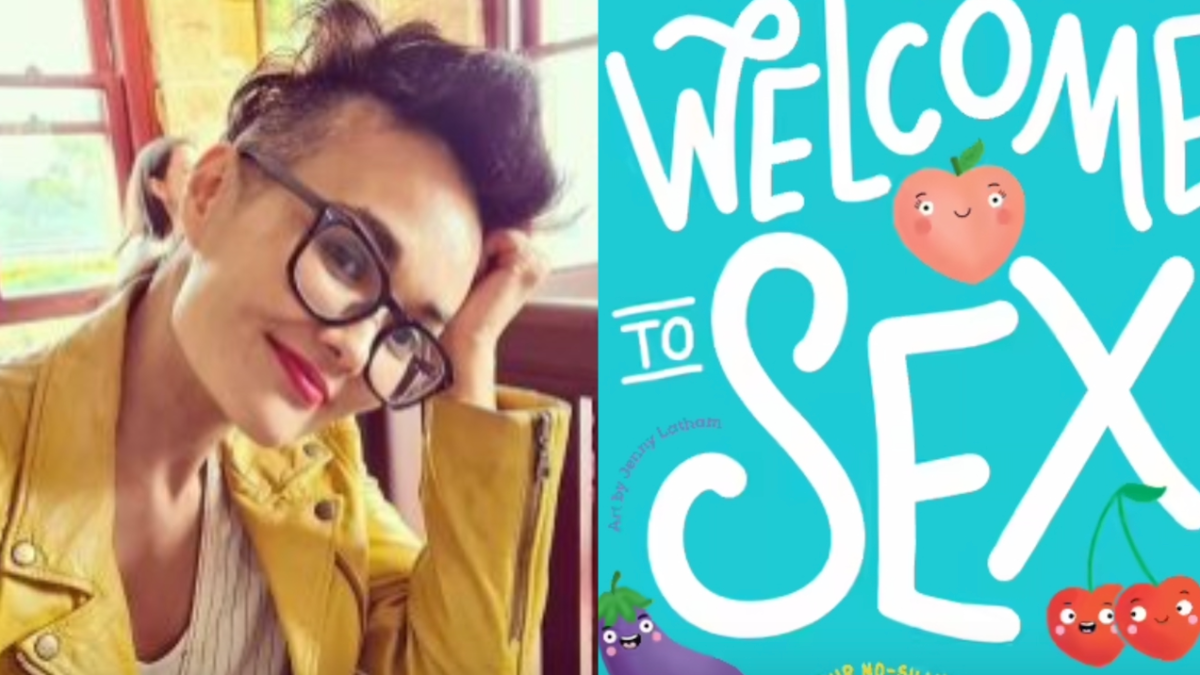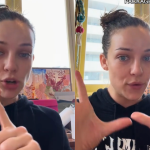
By now you’ve likely heard the controversy surrounding Yumi Stynes and Dr Melissa Kang‘s book Welcome to Sex: Your No-Silly-Questions Guide to Pleasure, Sexuality and Figuring it Out.
If you haven’t, here’s a quick recap: former Dolly Doctor expert Kang and podcaster Stynes created the sex-ed book (making it the fourth in their award-winning Welcome To series) as a “frank, age-appropriate introductory guide to sex and sexuality for teens of all genders.”
Sounds great, right? A book like this is exactly what I wish I had when I was a teenager who thought a ‘blowjob’ was literally just blowing air onto a penis. Seriously.
However, backlash from conservative family groups as well as anti-trans and anti-abortion organisations quickly resulted in Big W removing the book from shelves in an effort to protect staff after a number of workers experienced abuse. In great news for the authors though, the book is currently smashing best-seller lists (grab yourself a copy HERE!).
While this story might feel a little American (slur), controversy to sex-ed in Australia isn’t actually new. It was only a few years ago that the Safe Schools program, a curriculum designed to educate kids on sexual and gender diversity to prevent bullying, was scrapped following conservative outcries.
In Australia, sex-ed is mandatory per a national curriculum, yet schools are at liberty to interpret and deliver the information they deem relevant. This means that a comprehensive sex education that teaches age-appropriate information on consent, relationships, diversity, pleasure, plus STI and pregnancy risks can be missed, leaving young people feeling lost with unanswered questions – and we all know where curious teenagers go looking for answers (hint: it’s not the library).
A national survey of Australian high school students found that nearly 70 per cent of young people used the internet to find answers on sex, with Instagram and TikTok being the most common places they go. Alarmingly, nine per cent of young people also reported using porn to get information on sex, with 13.6 being the average age for first seeing porn.
Kids are also likely to turn to their peers for info on sex, which can lead to some seriously cooked ideas being circulated. One poll of 500 kids aged 11-14 found common misconceptions around sex included that it’s unhealthy for someone with an erection to not have sex, and that you can’t get pregnant the first time you have sex.
Parents are of course going to differ on how and when they want their child to learn about sex, but surely even the most conservative ones can agree they don’t want their kids learning about sex through TikTok, porn, or their friends. So why is a non-compulsory, legitimate sex-ed book so controversial?
Opposers to the book have accused it of grooming children, while others say the book reads as a “sex manual for kids”. Having bought and read a copy of the book, I can confirm it’s neither. It seems in this case many can’t distinguish between sexuality education and sexualised education, as the book simply provides young people with answers to curly questions from experts, descriptions of common sex acts (yes, this includes scissoring and anal sex *gasp*), and how to navigate tricky emotions.
Ideally, Welcome to Sex would be bought by a parent or carer who could use it to supplement school-based sex-ed when their child is ready. This whole-school approach to sex-ed that’s reinforced at home is the most effective form, yet some believe that sex-ed should lie solely with parents.
This, however, ignores the fact that neither parents nor kids generally feel comfortable discussing sex with each another – I, for one, was too mortified to ask my parents what exactly a blowjob was and would have loved a no-nonsense book to explain it to me.
I am left baffled by what those who oppose Welcome to Sex want for their kids. Do they really want their children left completely ignorant to their bodies and to consent? We know that equipping young people with the facts about sex leads to better outcomes. It’s not a coincidence that the American states that implement abstinence-only education also have the highest rates of teenage pregnancies.
Sex and pleasure are a part of the human experience, and young people are going to discover this whether you try and hide it from them or not. As adults, the least we can do is provide young people with the facts so they can be empowered and safe when they’re ready to have sex.
Zoe Snell is a freelance writer living in Perth with her cat Chub. She is currently completing her Master in Sexology. You can find her on Instagram here.



